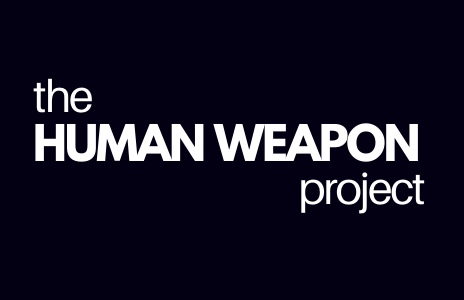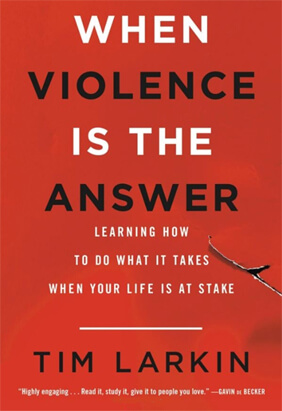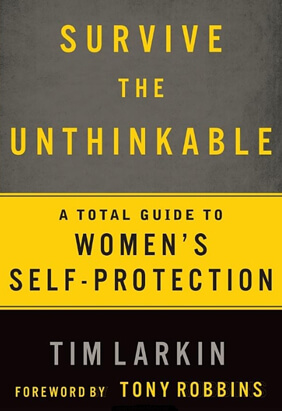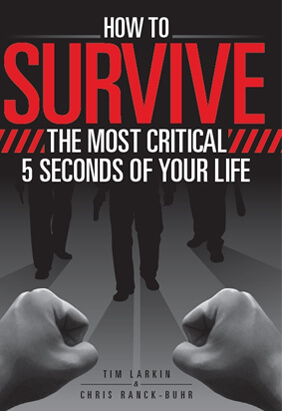
- timlarkin
- antisocial aggression, Asocial Violence, dead men tell no tales, necessary violence, using violence, violence, violence facts
USING VIOLENCE: DEAD MEN TELL NO TALES
 When we see an act of someone using violence, we feel it in our guts. Our eyes turn to the hapless victim, desperately trying to defend himself, and a part of us is there, suffering with him. This is what sane, socialized people experience when they see violence: Empathy. We can imagine the pain and we empathize with the plight of the victim. This is normal and natural and good. It’s what makes society tick along and keeps us from tearing out each other’s throats at the drop of a hat.
When we see an act of someone using violence, we feel it in our guts. Our eyes turn to the hapless victim, desperately trying to defend himself, and a part of us is there, suffering with him. This is what sane, socialized people experience when they see violence: Empathy. We can imagine the pain and we empathize with the plight of the victim. This is normal and natural and good. It’s what makes society tick along and keeps us from tearing out each other’s throats at the drop of a hat.
If you spend any time at all worrying about things like violence, that knee-jerk empathy morphs into questions: What could the victim have done differently? How can I keep that from happening to me?
The fantasy is that if only you could learn from his mistakes, then what happened to him can’t happen to you.
It’s a neat idea, but much like the dead guy, full of holes.
The only piece of (almost) useful information we can learn from the dead guy is to not be there. I say “almost useful” because it’s stupid-obvious. It works okay when you’re presented with a clear-cut choice: Do I escalate or disengage? But it’s stupid when you think about scenarios like workplace shootings: “I’m not coming in today. I feel a shooting coming on.”
Anything you think you could learn from the dead guy’s performance – if he’d just gone for the eye or not stepped back – is pointless because it’s all pretend. It’s make-believe.
It didn’t happen that way.
Someone else in the picture was doing something that worked. Something that got the job done. Something that made the dead guy dead. He’s the one you’re going to want to look at if you want to learn what works when using violence.
Is this a nice, comfortable idea? Hell no. The vast majority of violent video footage also happens to be criminal. And you, not being a criminal, will find it naturally difficult to empathize with the person doing the violence. But that’s the only place where there is anything useful to be learned.
Why? Because it is a record of what works in using violence. It’s not pretend, it’s not coulda-woulda-shoulda—it is. When we shift focus off of the dead guy and onto the survivor, we leave the world of conjecture and land squarely in the realm of fact. If you’re going to bet your life on something, I don’t recommend you bet it on a bunch of opinions or armchair quarterbacking. Bet it on the facts.
The person doing the violence is using the facts to his advantage. Pay attention to what he’s up to.
The only thing the dead guy can show you is the end result of those facts. And that’s information you already had going in.
All Latest Posts
- WHATS MISSING IN ALL SELF PROTECTION TRAINING & WHY THE MEDIA LIKES IT THAT WAY
- SELF-DEFENSE AND FIGHT SCIENCE
- PREVENT VIOLENCE VS. DO VIOLENCE: PART I
- PREVENT VIOLENCE VS. DO VIOLENCE: PART II
- SELF DEFENSE TRAINING: KILLING WITH RULES
- SELF-DEFENSE: STOP FIGHTING AND DELIVER A BEATING
- SELF PROTECTION QUESTION: HOW CAN I JUSTIFY THE USE OF VIOLENCE?
- SELF-PROTECTION MENTALITY: I WAS PREOCCUPIED WITH WHAT I WAS GOING TO DO TO HIM
- FIRST STRIKE: HOW AND WHY YOU SHOULD LAND IT
- INTIMIDATION DURING SELF PROTECTION IS A SUCKER’S GAME
- ANTISOCIAL CONFRONTATION: AGGRESSIVE, BADASS OR DEADLY?
- DEBILITATING INJURY: HOW TO TAKE A PUNCH
- TARGET FOCUS TRAINING PRINCIPLES IN A NUTSHELL
- SELF PROTECTION LESSON: MOVE WITH THE INJURED MAN
- SELF-DEFENSE CLASSES: WHO HAS THE REAL KOOL-AID?
- THE “NUCLEAR OPTION” OF LIFE OR DEATH SELF-DEFENSE
- INJURY IS THE ONLY GOAL OF VIOLENCE
- WHEN IS IT TIME TO LEARN SELF-DEFENSE TECHNIQUE?
- La guía de autodefensa de un teleadicto y otras historias
- Ein Couch-Potato-Leitfaden zur Selbstverteidigung und andere Geschichten
- SELF DEFENSE FACT: FIGHTING IS HARD. HURTING PEOPLE IS EASY.
- THE OL’ ONE-TWO
- ANTI-SOCIAL AGGRESSION AND TRAGEDY ARE AVOIDABLE
- PERSONAL SELF-DEFENSE: THERE ARE NO “EASY” TARGETS
- SELF-DEFENSE LESSONS: YOU CAN’T WAVE AN INVISIBLE GUN
- ARE YOU AGGRESSIVE, BADASS, OR DEADLY?
- THE TARGET FOCUS TRAINING EXPERIENCE
- SELF-DEFENSE Q&A: WHERE DOES TFT FIT INTO LAW ENFORCEMENT?
- IS LETHAL FORCE SELF-DEFENSE USEFUL IN YOUR EVERYDAY LIFE?
- “But I Don’t Want to Kill Anyone!”
- “But What If He Flinches?”
- A Couch Potato’s Guide To Self Defense and Other Stories
- Why Not Just Buy a Gun?
- It’s a Nice Idea–But Does It Really Work?
- There’s only one way to train
- The Beating, the Breaking, or the Fall from a Great Height?
- Speed: The Last Thing You Need For Self-Defense
- Fighting Through Injury
- Targeting: Secret To Self Defense Success?
- Are You Learning To Fight… Or To Dance?
- Generación de máxima potencia
- Maximale Leistung erzeugen
- What Color Crayon Should I Use For A Ruptured Spleen?
- INJURY – The Only Goal Of Violence
- Violence as a Survival Tool
- Generating Maximum Power
- Social Confrontation vs Asocial Violence – Part 3
- Social Confrontation vs Asocial Violence – Part 2
- Social Confrontation vs Asocial Violence – Part 1
- Striking… TFT Style
- The Final Word in Context: MURDER
- Scenario Based Training Vs. The Hard Knot
- Time to Stop Lying to Yourself
- The Mindset to Survive and the Will to Win
- Training to “Wait and See”
- Access the Meat: Choosing the Level of Interaction in Violent Conflict
- Why Self-Defense is NOT Enough…
- SOCIAL OR ASOCIAL VIOLENCE – WHY BOTHER?
- THE ULTIMATE SELF-DEFENSE FIGHTING TECHNIQUE
- STRIKING – TFT STYLE
- ACCESS THE MEAT: CHOOSING THE LEVEL OF INTERACTION IN VIOLENT CONFLICT
- SELF DEFENSE IS NOT ENOUGH
- LEARN SELF DEFENSE: SHUT UP AND HURT HIM
- WINNING VIOLENCE: WOULD IT MATTER TO A SERIAL KILLER?
- DO SELF DEFENSE LESSONS LIKE TFT REALLY WORK?
- SELF-DEFENSE FACT: INJURY IS WHAT WORKS IN VIOLENCE
- SELF-DEFENSE TRUTH: WORRYING ABOUT LOSING WON’T MAKE YOU WIN
- LEARNING SELF-DEFENSE IS NOT ENOUGH
- PROTECT YOURSELF: BUILD A BETTER MONSTER
- LEARN SELF DEFENSE: THE DEFINITION OF VIOLENCE
- SELF DEFENSE QUESTION: ARE THERE ANY DOWNSIDES TO LIVING IN THE CAUSE STATE?
- A SELF DEFENSE TOOL IS JUST A TOOL
- SURVIVING THE AFTERMATH OF SELF-DEFENSE
- MULTIPLE ATTACKERS SELF-DEFENSE: PART THREE
- SELF PROTECTION: NATURE OR NURTURE?
- SELF DEFENSE AND YOUR EXPECTATIONS
- UNDERSTANDING VIOLENCE: FOUR LEVELS OF HUMAN INTERACTION
- WHY DO WE TEACH LETHAL SELF DEFENSE?
- SELF DEFENSE MINDSET: WHAT IS YOUR LIFE WORTH?
- BUT I DON’T WANT TO KILL ANYONE!
- SELF DEFENSE TRAINING VS. MMA TRAINING
- MULTIPLE ATTACKERS SELF DEFENSE: PART TWO
- ES IST EINE MÄNNER WELT… ODER WARUM ICH ES HASSE, FRAUEN ZU TRAINIEREN
- IMPACTANTE ESTUDIO REVELA QUE LA CONDICIÓN FÍSICA NO ES UN FACTOR CUANDO LUCHA POR SU VIDA
- CUANDO TU VIDA ESTÁ EN JUEGO, AQUÍ ES CÓMO JUGAR SEGÚN LAS REGLAS
- SCHOCKIERENDE STUDIE ZEIGT, DASS FITNESS KEIN FAKTOR IST, WENN UM IHR LEBEN KÄMPFT
- WENN IHR LEBEN AUF DEM SPIEL STEHT, SO SPIELEN SIE NACH DEN REGELN
- MANIOBRAS CORPORAL PARA EMPRESARIOS
- KÖRPERMANÖVER FÜR GESCHÄFTSLEUTE
- ES UN MUNDO DE HOMBRES… O POR QUÉ ODIO ENTRENAR MUJERES
- USING VIOLENCE: DEAD MEN TELL NO TALES
- MULTIPLE ATTACKERS SELF DEFENSE: PART ONE
- SLOW YOUR SELF PROTECTION TRAINING DOWN
- SELF DEFENSE TECHNIQUE: BUILD YOUR TARGET MAP
- SELF DEFENSE MOVES: KNOW HOW TO BREAK A NECK
- VIOLENCE & KISS (OR KILL IT SIMPLY, STUPID)
- SELF DEFENSE IS A SHAM • PART 2
- PRACTICING SELF DEFENSE: CAN BIGGER-STRONGER-FASTER MAKE A DIFFERENCE?
- THE BLUEPRINT FOR SUCCESS IN USING VIOLENCE
- SELF DEFENSE IS A SHAM • PART 1
- VIOLENCE STARTS AND ENDS WITH YOU
- FORGET FIGHTING. DELIVER AN INJURY.
- A FIREARM ISN’T EVERYTHING
- NAILING DOWN INTENT
- THE ANATOMY OF A SELF DEFENSE SEMINAR
- THE SELF DEFENSE PARADOX: IF YOU WANT A TRULY PEACEFUL LIFE, THEN TRAIN VIOLENCE.
- WHEN YOUR LIFE IS ON THE LINE, HERE’S HOW YOU PLAY BY THE RULES
- SHOCKING STUDY REVEALS FITNESS NOT A FACTOR WHEN FIGHTING FOR YOUR LIFE
- BODY MANEUVERS FOR BUSINESSMEN
- ITS A MAN’S WORLD… OR WHY I HATE TRAINING WOMEN









